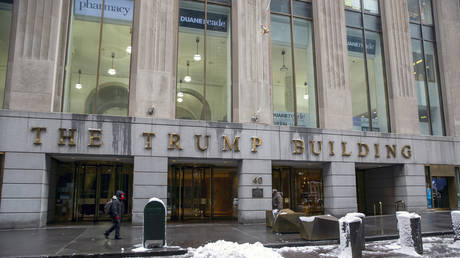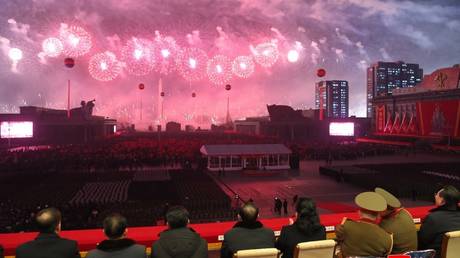
Two of the former president’s companies have been convicted in New York of tax fraud
New York prosecutors have won a criminal conviction against two of former President Donald Trump’s companies on fraud charges, convincing jurors that they schemed to help top executives dodge taxes by packaging part of their compensation as off-the-books perks.
The New York County Supreme Court jury delivered its verdict on Tuesday in Manhattan, finding Trump Corp. and Trump Payroll Corp. guilty on a combined 17 criminal charges. The companies face as much as $1.6 million in criminal fines.
The former president wasn’t charged in the case and didn’t attend the trial. One of his lawyers, Susan Necheles, said evidence showed that Trump wasn’t involved in the actions in question.
Longtime Trump Organization executive Allen Weisselberg was the only individual who was charged in connection with the tax scheme. The 75-year-old former chief financial officer pleaded guilty in August under a deal with prosecutors that spared him a prison term of as much as 15 years if he had been convicted at trial. He will instead have to serve only 100 days after agreeing to testify against the two indicted companies.
Weisselberg’s second-in-command, Jeffrey McConney, also testified after being granted immunity from prosecution. He admitted to following Weisselberg’s instructions to arrange the paperwork that enabled the CFO and other executives to evade paying some of the taxes that they would otherwise owe.
At issue were thousands of dollars in non-cash compensation, such as company-paid apartments and cars, which executives failed to report on their income tax returns. Prosecutors claimed, without evidence, that Trump sanctioned the tactic because it kept top employees happy and reduced compensation costs.
“Today’s guilty verdict against the Trump Organization shows that we will hold individuals and organizations accountable when they violate our laws to line their pockets,” New York Attorney General Letitia James said.
The Trump Organization will appeal Tuesday’s verdict, defense lawyer Alan Futerfas told reporters. The appeal may challenge instructions to the jury on whether taxes were avoided on “behalf of” the Trump companies.
The defense argued that Weisselberg avoided taxes for his own benefit and was compelled to testify against the companies because prosecutors had him “by the b*lls.” The Trump team also called the case “politically driven,” saying such allegations are “always resolved in a civil context,” rather than pursued in criminal court.




